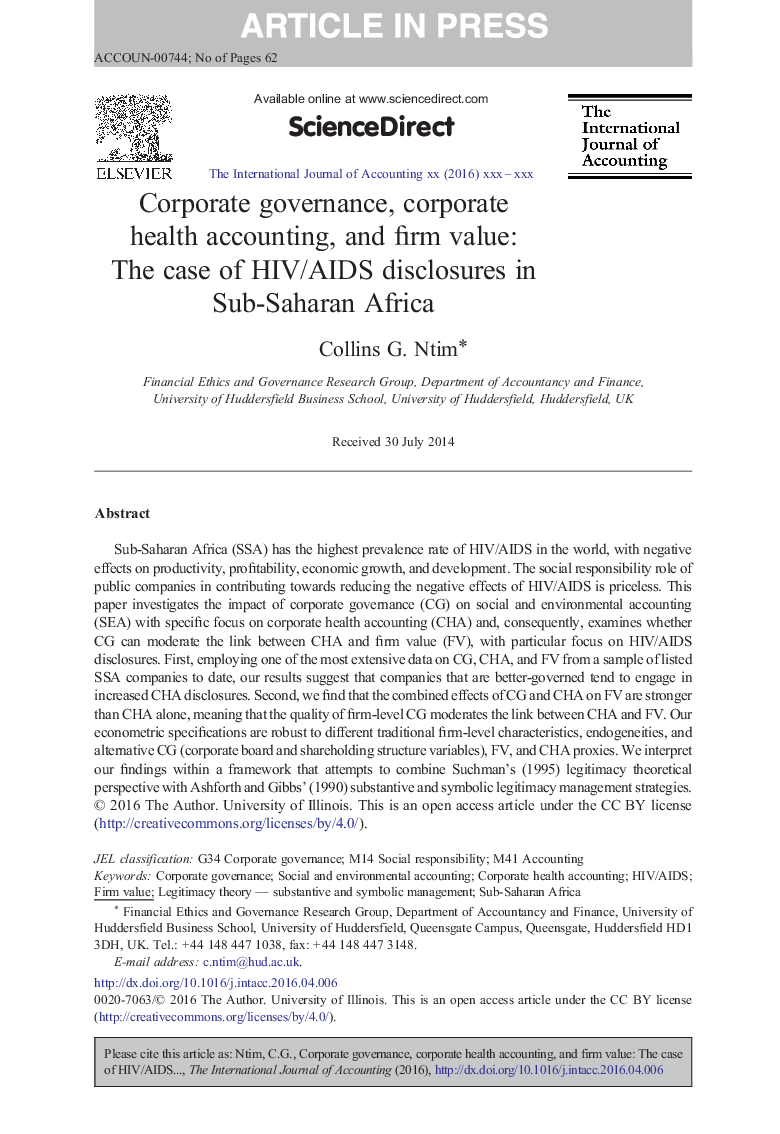| Article ID | Journal | Published Year | Pages | File Type |
|---|---|---|---|---|
| 7415533 | The International Journal of Accounting | 2016 | 62 Pages |
Abstract
Sub-Saharan Africa (SSA) has the highest prevalence rate of HIV/AIDS in the world, with negative effects on productivity, profitability, economic growth, and development. The social responsibility role of public companies in contributing towards reducing the negative effects of HIV/AIDS is priceless. This paper investigates the impact of corporate governance (CG) on social and environmental accounting (SEA) with specific focus on corporate health accounting (CHA) and, consequently, examines whether CG can moderate the link between CHA and firm value (FV), with particular focus on HIV/AIDS disclosures. First, employing one of the most extensive data on CG, CHA, and FV from a sample of listed SSA companies to date, our results suggest that companies that are better-governed tend to engage in increased CHA disclosures. Second, we find that the combined effects of CG and CHA on FV are stronger than CHA alone, meaning that the quality of firm-level CG moderates the link between CHA and FV. Our econometric specifications are robust to different traditional firm-level characteristics, endogeneities, and alternative CG (corporate board and shareholding structure variables), FV, and CHA proxies. We interpret our findings within a framework that attempts to combine Suchman's (1995) legitimacy theoretical perspective with Ashforth and Gibbs' (1990) substantive and symbolic legitimacy management strategies.
Keywords
Related Topics
Social Sciences and Humanities
Business, Management and Accounting
Accounting
Authors
Collins G. Ntim,
